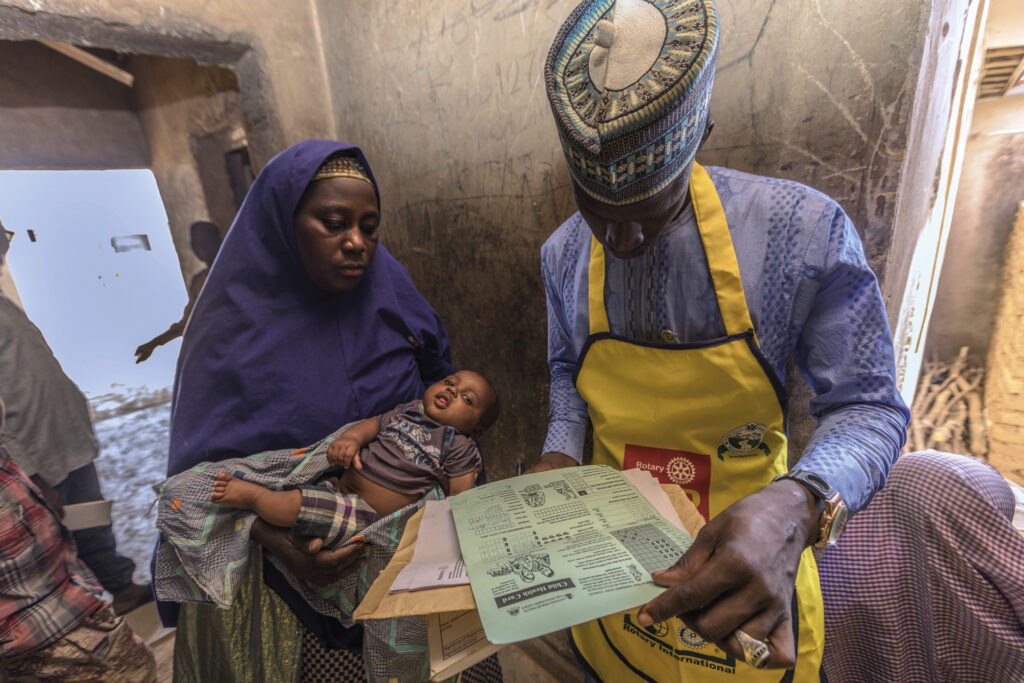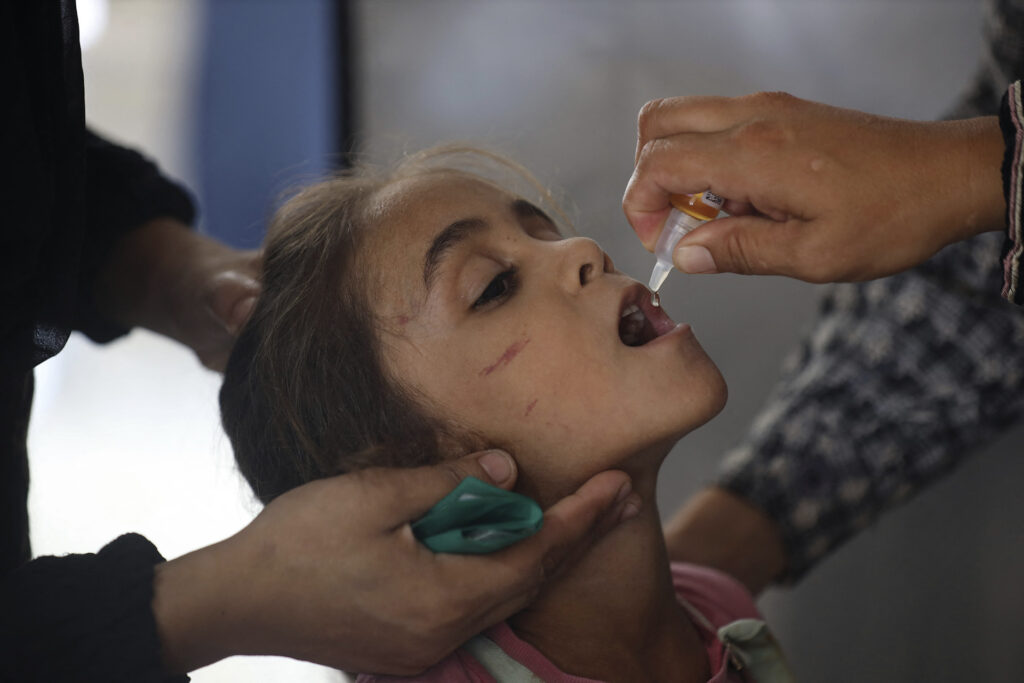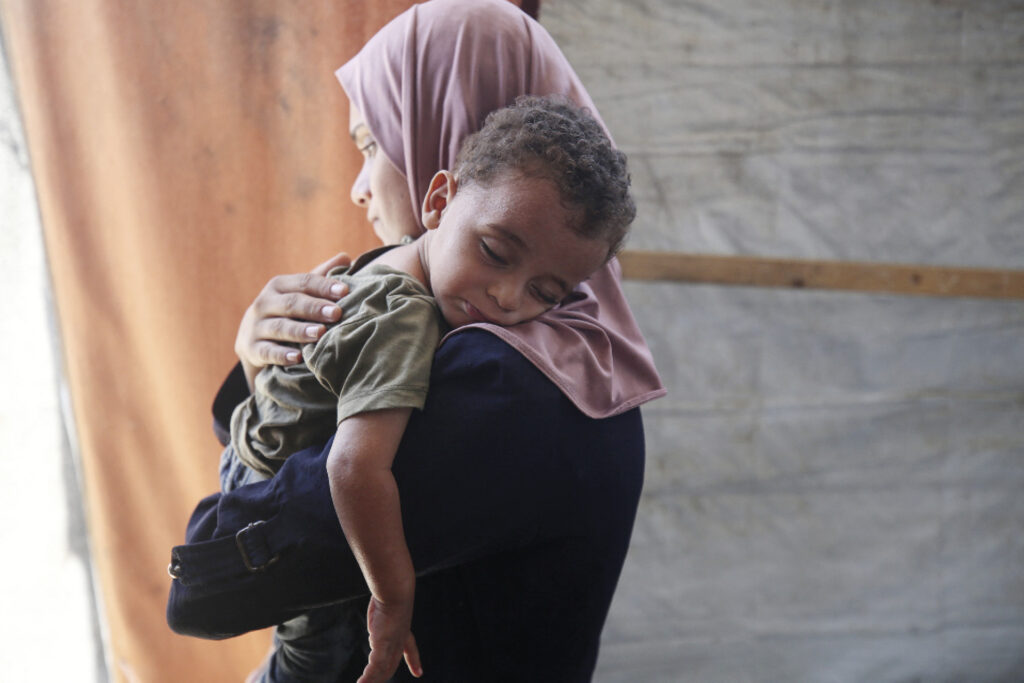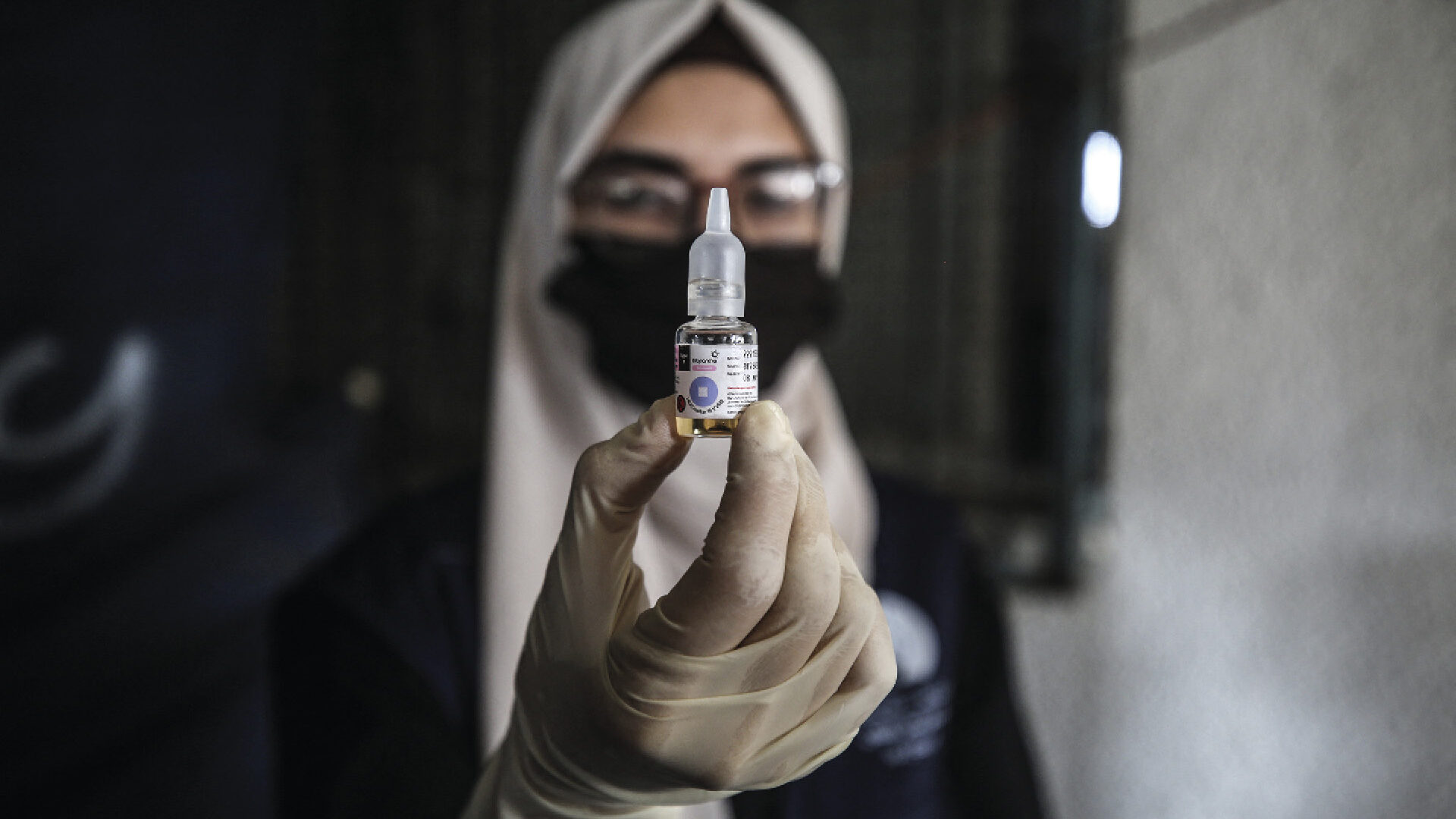By Anne Matthews, D9560 Passport, Rotary Club, Qld
In the lead up to World Polio Day on October 24, Anne Matthews looks back on how far we have come in our quest to eradicate this debilitating disease and explores the worrying rise in vaccination fatigue and vaccine hesitancy throughout the developed world.
One thing we learn throughout life is that history has a habit of repeating itself. This applies not only to wars and famine but also to diseases and plagues.
Today, the words of the 1972 Smokey Robinson and the Miracles song “We’ve come too far to end it now” are so appropriate for Rotary’s number one priority – to end polio. We have certainly come too far to stop the fight now. Rotary has been working to eradicate polio for more than 45 years. Our goal of ridding the world of this disease is closer than ever.
But many of us are in despair as we seem to get so close to total eradication and then receive news of the number of rising cases in the two remaining endemic countries. The latest statistics show that so far this year there have been 35 new cases – 18 in Afghanistan and 17 in Pakistan. In 2023, there were only 12 cases – six in each of the endemic countries.
As a founding partner of the Global Polio Eradication Initiative (GPEI) Rotary has helped reduce polio cases by 99.9 per cent since our first project to vaccinate children in the Philippines in 1979. This project was initiated by Australian Rotary International President Sir Clem Renouf and since then Rotary members have contributed more than US$2.1 billion and countless volunteer hours to protect nearly three billion children in 122 countries from this paralysing disease.
Rotary’s advocacy efforts have played a role in decisions by governments to contribute more than $10 billion to the effort. Even though polio remains endemic in only two countries it’s crucial to continue working to keep other countries polio free. If all vaccination efforts stopped today, within 10 years polio could paralyse as many as 200,000 children each year.

PICTURED: Health workers participate in a door-to-door polio immunisation campaign in Maiduguri, Borno State, Nigeria. Rotary International is working closely with the government of Nigeria and its GPEI partners to intensify polio-eradication efforts there by addressing cultural barriers, fostering community education, and increasing surveillance.
And now Gaza has recorded its first polio case in 25 years – tests in Jordan confirmed the disease in an unvaccinated 10-month-old from the central Gaza Strip, with the World Health Organisation reporting
other suspected cases in the region.
The Palestinian Health Ministry called for pauses in the Israel-Hamas war in order to vaccinate hundreds of thousands of children.
On August 30, a senior WHO spokesperson said that the Israeli military and Palestinian militant group Hamas had agreed to three separate zoned three-day pauses to fighting in the Gaza Strip.
The first round of vaccinations started in central Gaza on September 1, with 195,747 children vaccinated over the first three days, and then moved to southern Gaza for another three day pause, where 250,694 children were vaccinated. In northern Gaza 106,110 children were vaccinated to bring the total to 552,451 across the region.
Communities were enthusiastic about the vaccination efforts, with a large number of families bringing children to the 117 fixed sites to receive the nOPV2 vaccine. There are plans for a second round of immunisations in mid October.
However, more disturbing than these overseas cases, people in Australia and other developed countries have stopped vaccinating their children against not only polio, but diseases such as whooping cough, diphtheria and tetanus. Australia and 36 other countries in the Western Pacific Region were declared polio free on October 29, 2000.
Today – 24 years after our polio-free declaration – Queensland-based newspaper the Courier Mail reported that vaccination rates have dropped to lows not seen for decades, with the Gold Coast Hinterland and areas of the Sunshine Coast only having vaccinations rates of around 80 per cent. This incites serious fears about the return of diseases such as polio.

PICTURED: A Palestinian child receives a polio vaccination in the UK-MED field hospital in Khan Younis in the southern Gaza Strip, on September 5, 2024, amid the ongoing conflict between Israel and the Palestinian militant group Hamas. (Photo: Majdi Fathi/NurPhoto)
“Overall, polio was well under control across Australia but the vaccination rates in children of 80 per cent is starting to get concerning,” said Professor Robert Boyd from the National Centre for Immunisation Research.
Queensland Chief Health Officer Dr John Gerrard said that there is vaccinations fatigue and vaccine hesitancy throughout the developed world.
So, how do we fix this vaccination fatigue? Society has a very short memory. It was only in the 1950s that we had hundreds of children in Iron lungs in polio wards across the country. And we still have polio survivors today who are either in wheelchairs or wear callipers – a metal support for a polio survivor’s leg.
Do we need a Grime Reaper campaign similar to the1987 AIDS campaign to make people aware of what polio can do to unvaccinated children? Or do developed countries need to make the polio vaccination mandatory?
Doctor Ricardo Nuila, author of The People’s Hospital – Hope and Peril in American Medicine, said: “In the 1980s and early ‘90s, medications only partially treated AIDS. We solved the problem with HAART – highly active anti-retroviral treatment. Today, thanks to these medications, more than 17 million people worldwide have near-normal, it not fully normal, lives with HIV. This breakthrough may very well be the biggest medical marvel since the polio vaccine.”
In 2011, Rotary welcomed celebrities and major public figures as ambassadors into a new public awareness program called ‘This Close’ to ending polio. The ambassadors included Nobel Peace Prize Laureate Desmond Tutu, violinist Itzjak Perlman, Bill Gates, Grammy Award winning singers Angelique Kidjo and Ziggy Marley, and environmentalist Doctor Jane Goodall. Rotarians still use the ‘This Close’ sign today.
In Australia, under the National Immunisation Program, a polio combination vaccine is free for children aged two months, four months, six months and four years. Eligible people under 20 years old and refugees and other humanitarian entrants of any age can get a free catch-up vaccination.
As part of the New Zealand childhood immunisation schedule, polio vaccine is offered free to babies at six weeks and five months. The vaccine known as infanrix-hexa is a combination vaccine that protects infants from six diseases.
In a media release in July, the Australian Medical Association (AMA) said that General Practitioners (GPs) are critical to overcoming vaccine misinformation and fatigue. The release said that GPs must be at the heart of Australia’s next National Immunisation Strategy to combat the vaccine fatigue and the misinformation that is spreading on social media.

PICTURED: Palestinian infant Abdul Rahman Abu Al-Jidyan, 11 months, who contracted polio in August, receives care from his mother and family inside a tent in a shelter for displaced people west of El-Zawaida in central Gaza Strip, on August 27, 2024. (Photo: Majdi Fathi/NurPhoto)
If you see misinformation on social media – call it out! Don’t let people put forward ideas and ‘information’ that is patently incorrect. History may well repeat itself, but we can play a part in defeating the trolls and fanatics who spread such incorrect material. Without the vaccinations, many will suffer unnecessarily – especially children.
Australian Medical Association (AMA) President Professor Steve Robson said, “The situation around the world is concerning, as a drop in childhood vaccinations is driving a global resurgence of measles and other infectious diseases. We are unfortunately still seeing misinformation about vaccines spreading like wildfire on social media, while a mixture of vaccine hesitancy and fatigue set in following the COVID-19 pandemic.”
As Rotarians it is our duty to work even harder to ensure the misinformation is corrected. Thank you to our World’s Greatest Meal to End Polio ambassadors and all polio warriors, especially those in Pakistan and Afghanistan who are putting in place strategies to refute the misinformation.
A special thank you to Terry Ziegler, from Texas, US, for his factual and informative weekly newsletters that set out the number of confirmed Wild Polio cases and the number of Circulating Variant Polio cases. Terry always includes a quote in his newsletter and the one from August 22 by UNICEF Executive Director Catherine Russell seems most appropriate for this article: “What gives you hope that polio eradication is possible? It’s simple for me. The dedication and heroic efforts of frontline workers globally and the unwavering commitment of donors and partners like Rotary, who will not stop until we reach every child. This is what makes me believe that together we will make polio history.”
World Polio Day on October 24, a global day to raise awareness and resources for the worldwide effort to eradicate polio, is fast approaching. If your club hasn’t started planning its World Polio Day event, it is not too late to begin. You can visit the Rotary Brand Centre for graphics, videos, flyers and public relations templates. More resources will be added throughout October, so keep checking the site. A World’s Greatest Meal to End Polio can be quickly organised. Visit wgmeal.org for more information.
After you plan your event, don’t forget to register. Last year, 10 per cent of Rotary and Rotaract clubs registered an event for World Polio Day. Let’s show the world that Rotary’s commitment to polio eradication is stronger than ever by registering even more events in 2024.
MAIN PICTURE: A view of a vaccine as the polio vaccination campaign covers more than 640,000 children under the age of 10 at a United Nations healthcare centre in Deir Al-Balah in the central Gaza Strip, on September 1, 2024, amid the ongoing conflict between Israel and the militant group Hamas. Israel agreed to at least three days of ‘humanitarian pauses’ in parts of Gaza, starting on August 31, to facilitate a vaccination drive after the territory recorded its first case of polio in a quarter of a century. (Photo: Majdi Fathi/NurPhoto)
Visit www.endpolio.org/register-your-event
